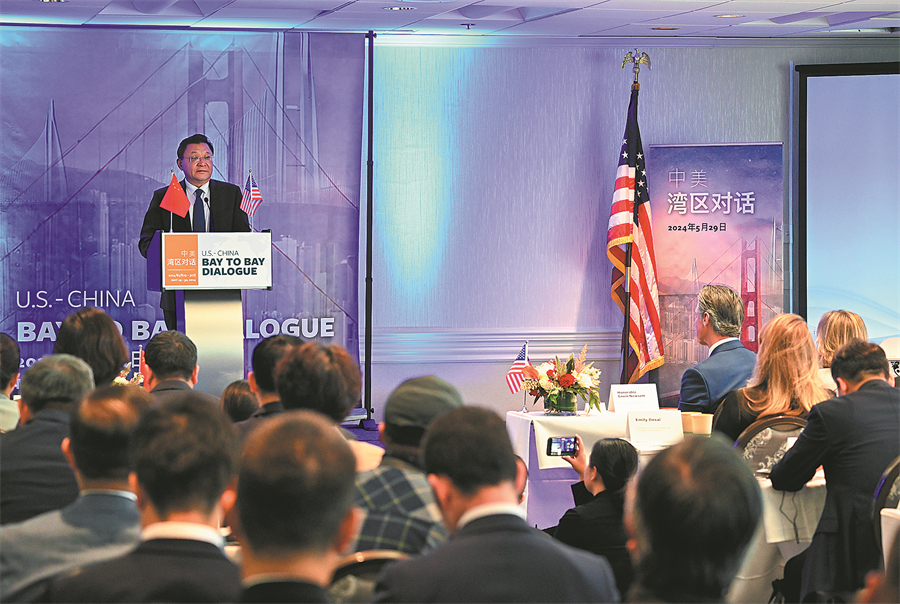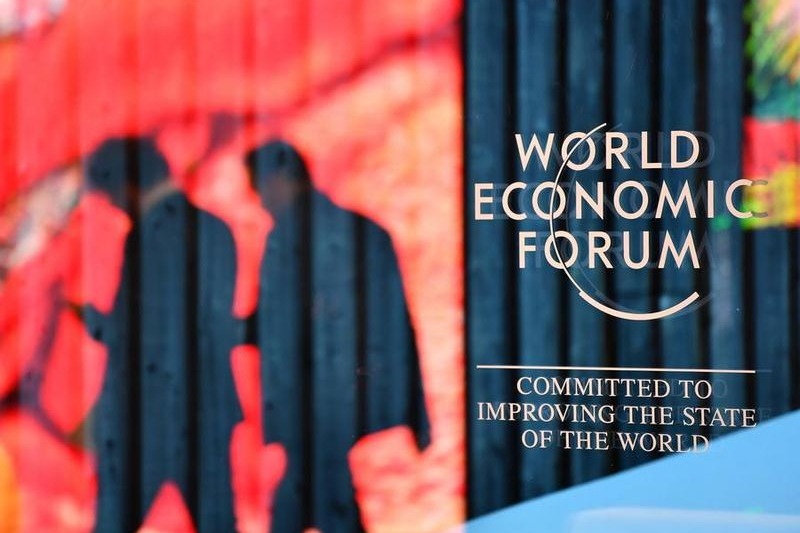Bay dialogue spurs collaboration on climate, trade
By CHANG JUN in Berkeley, California | chinadaily.com.cn | Updated: 2024-05-30 21:10

Policymakers and industry representatives from the Guangdong-Hong Kong-Macao Greater Bay Area and the California Bay Area reaffirmed on Wednesday that both sides should continue dialogue in multiple areas to learn from each other.
Discussions also focused on leverage on markets and opportunities of each other that will benefit all parties.
The "US-China Bay to Bay Dialogue" featured seminars and panel discussions with a Chinese delegation of more than 100 members, including Yang Wanming, president of the Chinese People's Association for Friendship with Foreign Countries, and government officials from China's Greater Bay Area. They engaged with counterparts from the California San Francisco Bay Area on various levels of governance.
Central topics of discussion included building green and low-carbon Bay areas through policy and action, sharing development opportunities, and promoting people-to-people exchange for mutual understanding and friendship.
Panelists unanimously recognized the importance of mutual learning and expertise sharing in areas such as climate change, public health, academic exchanges, technology innovation, city planning and management.
Collaborations and communications between the two bay areas are continuing and productive. Toks Omishakin, secretary of California State Transportation Agency, highlighted the value of his visits to China and discussions with Financial Secretary Chan Mo Po of the Hong Kong Special Administrative Region in addressing various challenges.
San Jose Mayor Matt Mahan complimented the "incredible innovation and manufacturing strength of China", without which some engineering and construction projects would have been impossible "at the scale that we are now deploying them".
The dialogue is an excellent example for business communities on both sides of the Pacific Ocean to work toward bringing prosperity, jobs and innovation to the two peoples, said Dee Dee Myers, senior adviser to the governor and director of the California Governor's Office of Business and Economic Development.
"There is no secret that there has been tensions between our two countries, (but) it is important for us to work on a subnational level to address some of the issues in every way that we can."
Wang Weizhong, governor of Guangdong province, said the Greater Bay Area welcomes US companies and people with the opening-up policy, its vast untapped market potential, the market-oriented ecosystem for doing business, and "the opportunities".
Citing the continuous expansions and brisk performances of US pharmaceutical company Pfizer and food company Kraft Heinz in Guangdong, Wang said US direct investment in the Greater Bay Area since last year is on the rise. "We see an even more robust surge in direct foreign investment in the first quarter."
Calling the dialogue "a very exciting time for us and the partnership (between the two bay areas)", Yana Garcia, secretary of California's Environmental Protection Agency, said the relationship between Guangdong and the Golden State over the years remains deep.
One particular area that Californian can learn from, she said, is China's policy on its vehicle electrification and its effect on decarbonization.
Ye Qing, chairwoman of the Shenzhen Institute of Building Research, said combating the common threats in today's world, such as global warming, will unite humankind regardless of differences in race, culture and politics. "We only have one world," she said.
























